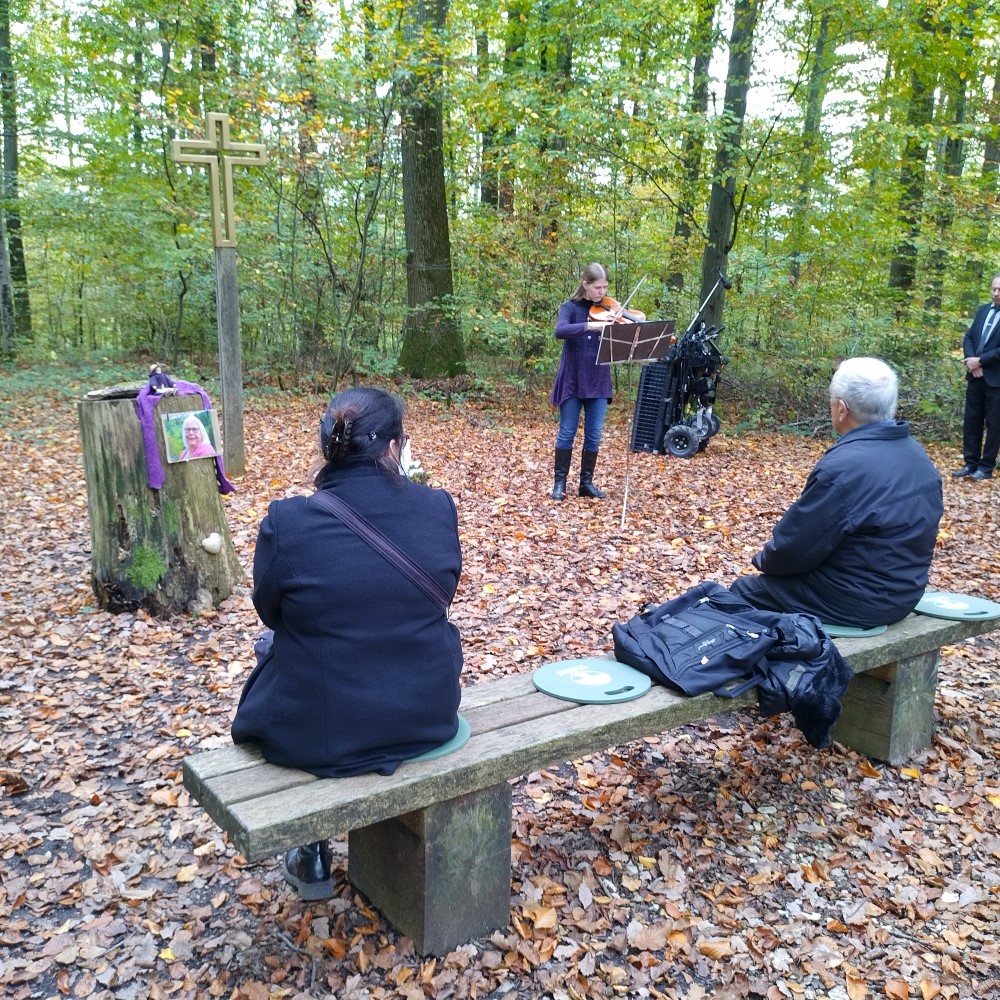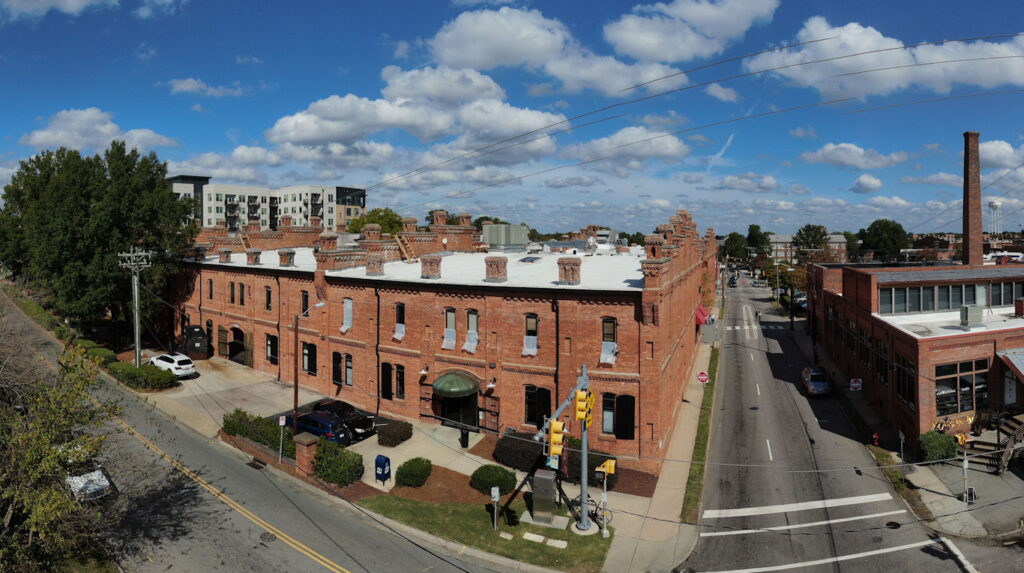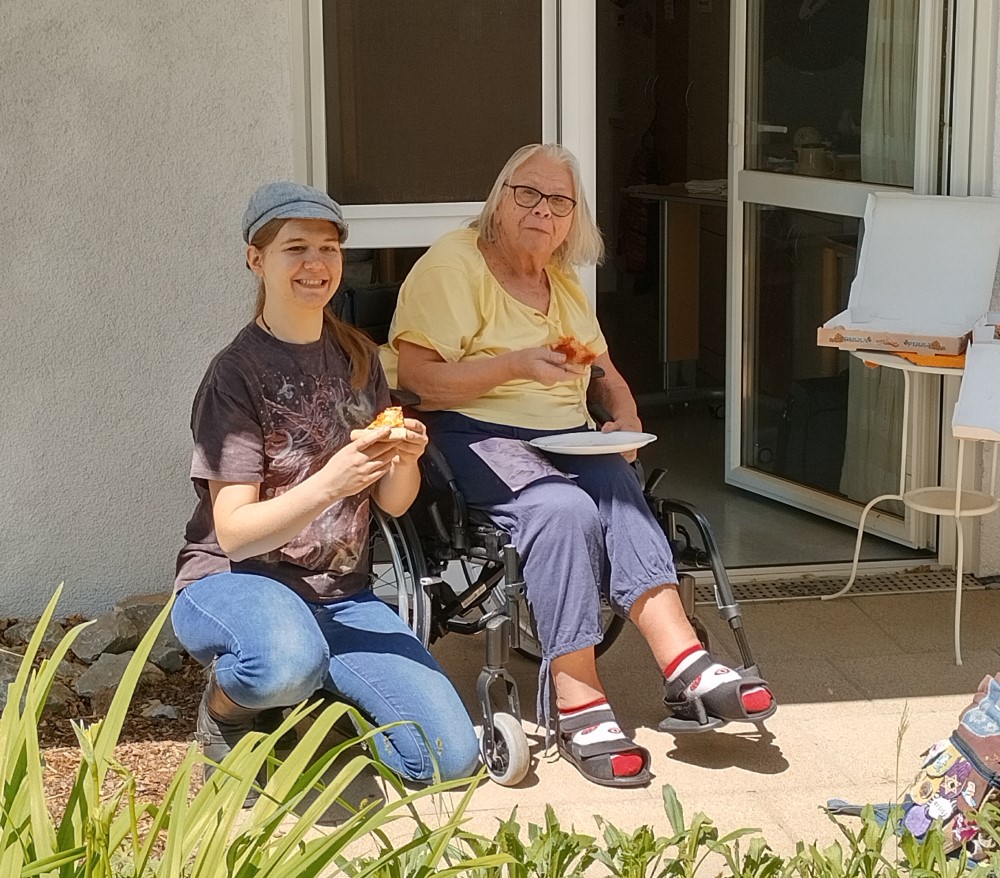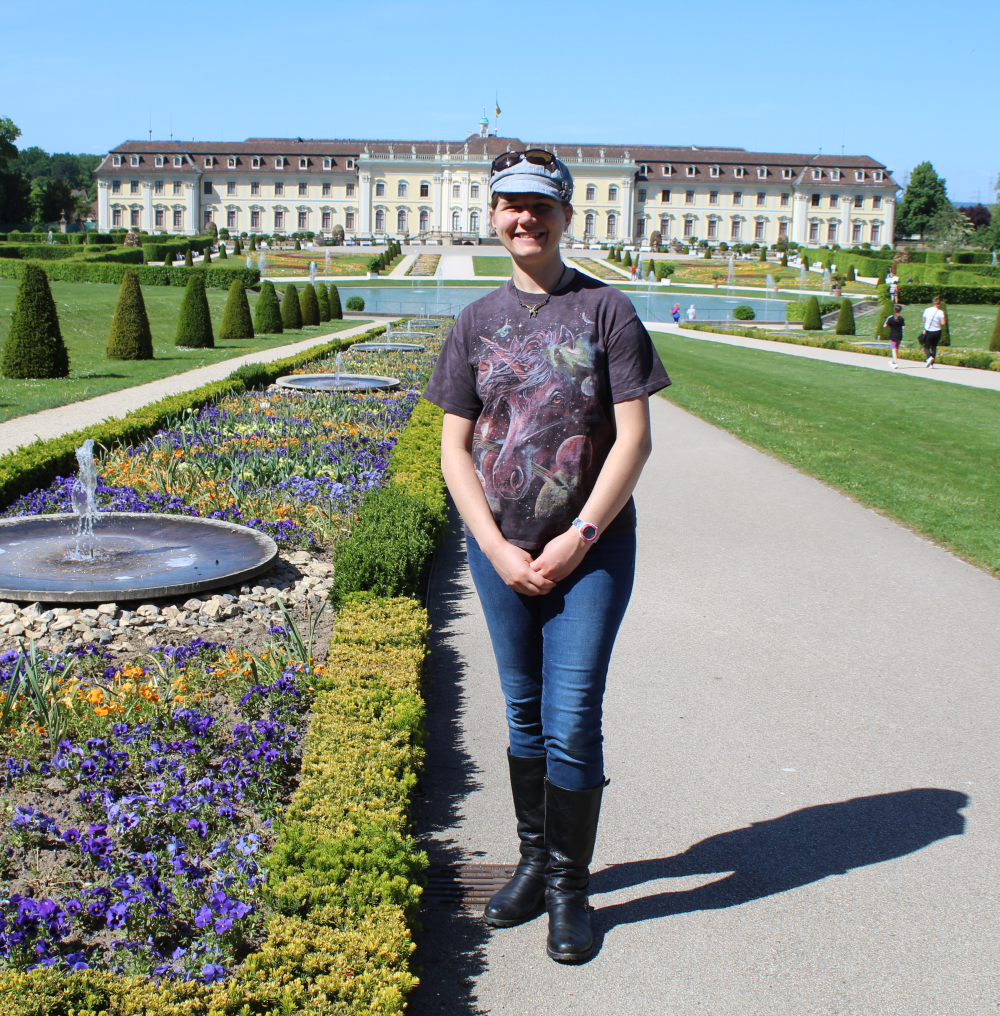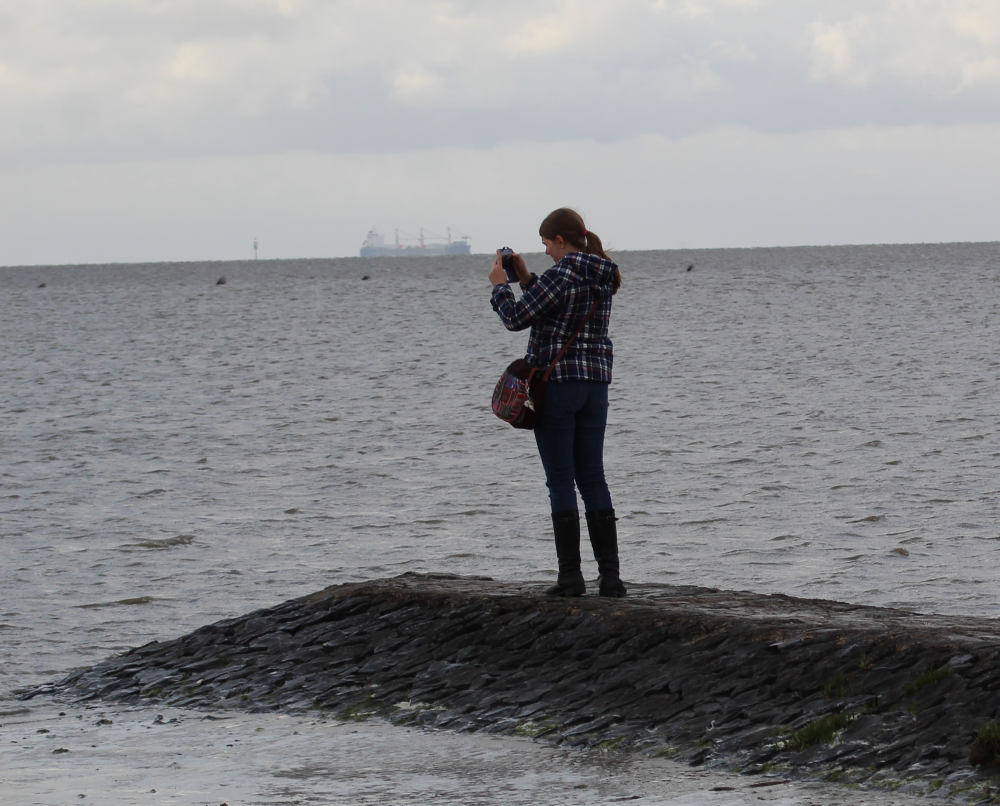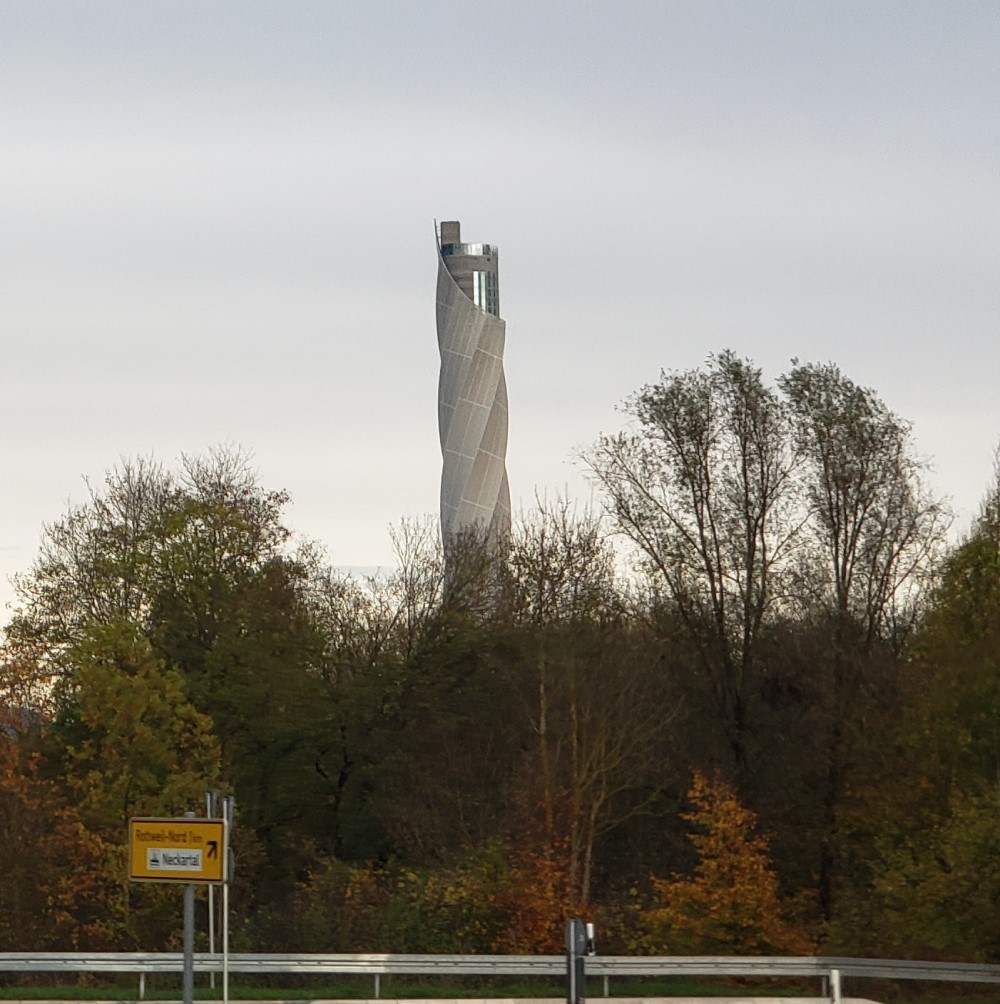2022
For me, last year was overshadowed by the illness of my mother and her death in September. I ended up taking four trips to Germany this year, none of which were particularly relaxing. Of course this was also year three of COVID, moving from pandemic to endemic. And COVID rules also impacted most of our travel experiences, except for the November trip, when most restrictions had been lifted and we did not enter a nursing home any more.
The insanity that is the the Russian invasion of Ukraine dominated the early months of 2022, although for us initially mostly as news and as a new global worry. The war remains a significant factor in public discourse, but over time it has become a significant economic factor in daily life, causing (for us) an overall increase in the cost of living due to increased energy cost. Closer to the war, in Europe, there is also a significant impact caused by the need to care for a huge number of refugees from Ukraine. And there is also quite a bit of worry about an escalation of the war, potentially plunging the continent (and the world) into another catastrophic conflict. Not even to mention the catastrophic consequences of the Russian invasion for Ukraine. The loss of lives, the trauma, the suffering this war is causing the Ukraininan people is unconscionable, and all efforts should be made to find ways to end this terrible bloodshed.
In February, my employer moved my office out of Brightleaf Square and into a new office building closer to campus. I had worked at Brightleaf Square since April 2002, so almost 20 years. The building and several neighboring buildings had also recently been sold, and the new owners were doing major renovations on the entire block, which was causing noise and traffic disruptions. So I was not too sad to miss out on that mess.
In early March we bought a beehive from a local beekeeper and started on that journey. Beekeeping is actually much more involved than one might assume. It’s fun, but also quite a lot of work – checking for mites regularly, treating the hive against parasites, preventing them from swarming and making sure they survive the winter. Our hive decided to swarm in early summer, and then they successfully raised a new queen. We also had to treat them pretty aggressively against mites all year, so all that resulted in us not being able to harvest any honey during our fist year as beekeepers.
In April, Jacob moved into his apartment on the other side of North Durham, a bit closer to his work at Freudenberg. In December, he adopted a dog – a Husky named “Sashimi” – to keep him company in his apartment.
In May, Julia and I embarked on our first trip to Germany to visit Family and give her a chance to reconnect with Germany and her German family.
We visited my sister and my mom near Stuttgart for a few days. This was the first time I had visited her in the nursing home in Berglen where she had moved in 2019. For Julia and Sigrid, it was the first in-person visit in 10 years, since Sigrid had not been able to travel to the U.S., and we had not been able to take the kids to Germany while they were in High School and College.
Sadly, on the second day of our visit, Laura had to inform us that our old, beloved gelding Wally had died. Laura had to deal with her horse’s sudden and ultimately terminal health decline by herself (and with the help of our vet) while Julia and I were traveling to and in Germany. The sad news from home had a strong impact on Julia and colored the experience of that trip for both of us. After some family discussion, we decided to continue our trip as planned, because even if we immediately started to plan a return trip, by the time we’d be back home there would not have been much we could do to help Laura.
So despite the bad news from home, we still tried to enjoy our trip. We visited Family in Tübingen, my dad near Freiburg and my aunt near Bremen, all of which gave Julia an opportunity to re-connect with her German-ness. We also visited some touristy sights like Ludwigsburg Palace, Hohenzollern Castle, Château du Haut-Koenigsbourg in Alsace, downtown Düsseldorf, the Schnoor neighborhood in Bremen, the Dangast artist’s colony in Friesland, and the North Sea beach in Cuxhaven-Duhnen. After 10 days and 1500 KM of driving, we returned to Frankfurt, checked into one of the many hotels near the airport, returned the car and early the next morning we took our Lufthansa flight back to the US.
In June, Sigrid was admitted to the hospital because her health was deteriorating rapidly. Previously, she had had a lot of trouble walking, and was mostly wheelchair bound. But now she started having trouble with her hands as well, and her legs became completely paralyzed. This was just a couple of weeks after we sat on her terrace and shared a pizza. She underwent extensive tests at the hospital for several weeks and then the doctors gave her the terrible news that they thought she had ALS. They sent her back to the nursing home, since there is no real treatment for ALS, since it is not known what causes the degeneration of the nerves.
Trigger Warning: the following paragraphs include a discussion of death and dying.
That summer was a crash course in learning about the German healthcare system. We had to figure out how to get her the care she needed, especially the pain management. We also tried to get her set up with a communication device that she could operate with her eyes, once her ability to speak failed. But it took weeks for the insurance to approve the device and more weeks to get an appointment to try one out. By the time we got approval to order the device, it was pretty much too late. Her body had declined so much that she could no longer learn how to use the device. We also tried to get her physician and a neurologist to see her at the nursing home – but neither ever showed up. We tried to get her an appointment with specialty clinics in Tübingen and Ulm, but it took them weeks to respond, available appointments were months away, and only outpatient appointments were available. An outpatient visit would have meant 2-3 hours of travel in one day and sitting in a waiting room, which was simply not feasible for her due to the pain. In the end, the only health care option she was left with was palliative care by a mobile hospice service (SAPV).
The harsh reality of Sigrid’s healthcare situation was that a 79-year-old woman on public health care with advanced ALS was simply not a priority case to the providers. That meant she had to wait, and her time was running out quickly. More and more of the motor neurons were shutting down, resulting first in paralysis of the limbs, then the entire body. Finally the facial muscles start failing, including those that enable us to speak and swallow food, and eventually the muscles that control the breath stop working, and breathing becomes impossible. At the same time, one is usually mentally pretty clear, and feels all the discomfort and pain associated with the paralysis and muscle wasting.
So when the hospice team took over her care, it was a huge relief that they 1) did not waste any time and 2) immediately addressed the pain management. We got that set up for her in July, when Laura and I traveled to Germany in order to help my sister deal with organizing Sigrid’s care. Two days after we contacted the hospice service, they did her intake and set up a pump for her pain meds, to simplify and improve the pain management. I was very glad to see that Sigrid quickly developed trust in their approach and seemed to like the matter-of-fact attitude of the palliative physician. Over the following weeks, the SAPV also sent a volunteer to keep her company 2-3 times a week, plus weekly visits from the nurse and the physician. So when Laura and I left Germany after 10 days, despite our frustration with the system overall, we felt that between the good care she received at the nursing home, the specialized care of the hospice team, and the regular visits of the volunteer and my sister, Sigrid was well taken care of for the time being.
The hospice team was very good about keeping us, the family, informed about their assessment of Sigrid’s status. So when I received an email from the nurse on Wednesday, Sept. 7 that they were considering palliative sedation for my mother, it was clear that she had reached the final stage of this journey. Laura and I immediately booked a flight to Germany and arrived Sunday afternoon at her bedside. The start of the sedation was planned for Monday afternoon. and I really wanted to get a sense from her what her wishes were. As difficult as the communication was, it was clear that she was OK with anything that would alleviate her suffering. Personally, I felt torn about this approach. On the one hand, alleviating the suffering as much as possible at that stage of the dying process makes sense. On the other hand, I believe it is important to make that transition as consciously as possible. But Sigrid’s wishes were the highest priority, and I was glad that she was able to express them, and that they were in line with the plans of the care team.
We stayed with her that afternoon until the nurses were getting her ready for her the night. Then we went back to the AirBnB and got some sleep. We returned the next morning to her bedside and settled in to stay with her for the day, so we would be with her when the sedation was administered. But things went quickly, and around noon on Monday she passed away peacefully, before any sedation was administered. We informed everyone, a physician came over to confirm her death, and my sister came over and handled working with the funeral home.
The rest of the trip is a bit of a blur – we met with the funeral home and visited the grave site. We went to see my dad for a couple of days, and then returned home.
The last and final trip to Germany for that year was in November for Sigrid’s funeral. This time Julia and I traveled, and Laura stayed home to take care of the animals. After 6 transatlantic flights in 6 months, I decided that I wanted to change things up a bit to keep it interesting, and so I booked us flights on Icelandair from RDU to KEF to FRA, with a 24 hr layover going, so we could have a quick visit to Iceland on the way to Germany. Also, getting on the transatlantic leg of the journey at RDU was so much easier! The planes are smaller and so boarding and deplaning is quick. And avoiding the large US hubs in New York, Chicago or Washington is awesome! Plus, the airport hotel at Keflavik is nice, and they let us check in at 8AM (for an extra fee). We were lucky, and the weather was very nice, so we went for a walk and lunch in Reykjavik and spent the afternoon at the Blue Lagoon. The next morning we got up at 5:00 AM and walked over to the terminal and checked in for the flight to Frankfurt. Since Iceland is part of the the Schengen Area (not the EU, thought) we then just went through security and walked up to the gate to wait for boarding. In Frankfurt we arrived at Terminal 2, which is also smaller and less hectic than T1, and I appreciated having had a good night’s sleep before driving from Frankfurt to Stuttgart in a rental car. So all-in-all this is really a more relaxed way to fly to Europe, although the day in Iceland was a bit expensive.

The funeral the following day was very nice – the weather was important, since it was an outdoor ceremony at a burial forest, but the rain had stopped and it was not too chilly. Julia played her viola and I read a letter to Sigrid I had written for this occasion. My sister was there, my dad also, and our cousin from Tübingen. My sister hired a musician – Wolfgang Joos – to play his pan flute at the beginning and the end of the ceremony. She had picked out a nice tree for the burial, on the southern edge of the forest. The escarpment of the Swabian Jura is visible from there, and next to the forest are pastures where sheep and horses graze. I think it’ll be a very peaceful and enjoyable place to visit and think of Sigrid.
The next day I drove to Bensheim (almost back to Frankfurt) to take care of some inheritance business (not related to my mother’s death). I also took the occasion to visit Sigrid’s father’s grave, since he is buried in Bensheim. That afternoon, Julia and I took a trip to the old town of Marbach am Neckar the birthplace of the famous German poet Friedrich Schiller. We also checked out Affalterbach (for you petrol-heads out there). Saturday we drove an hour east to a town near Aalen to visit an old friend of mine and his family.
On Sunday, on the drive to Freiburg, we did something I had wanted to do for a while: we visited the TK Elevator test tower in Rottweil, which is the tallest elevator test tower in Europe and the 4th-tallest in the world. The company tests the new, cable-less elevator technology at that site, but we did not get a chance to do a tour and visit the testing facility. But it was a gorgeous November day, and we had a great view of the Swabian Jura, the Black Forest, and we were even able to see the Alps far in the distance from the 807 ft/246m visitor platform.
After a 2-day visit with my dad, Julia and I drove to Frankfurt, hopped on our Icelandair flight back to Raleigh via Iceland. We took off from KEF at sunset but the sun did not actually set until about 5 hours later when we were cruising down the east coast towards North Carolina.
The rest of November and most of December was mostly me catching up on work, and helping Laura some on Saturdays at the craft markets selling her decals, lamps, origami ornaments and origami magnets. So by the time the holidays rolled around, I was ready for a break. But the week before the nasty holiday cold snap, our old heat pump started acting weird, and so I ended up 1) chopping a bunch of firewood, in case we needed backup heat, and 2) started getting quotes to get the entire system replaced in early ’23. So that’s something to not look forward to for the new year! Oh well.
